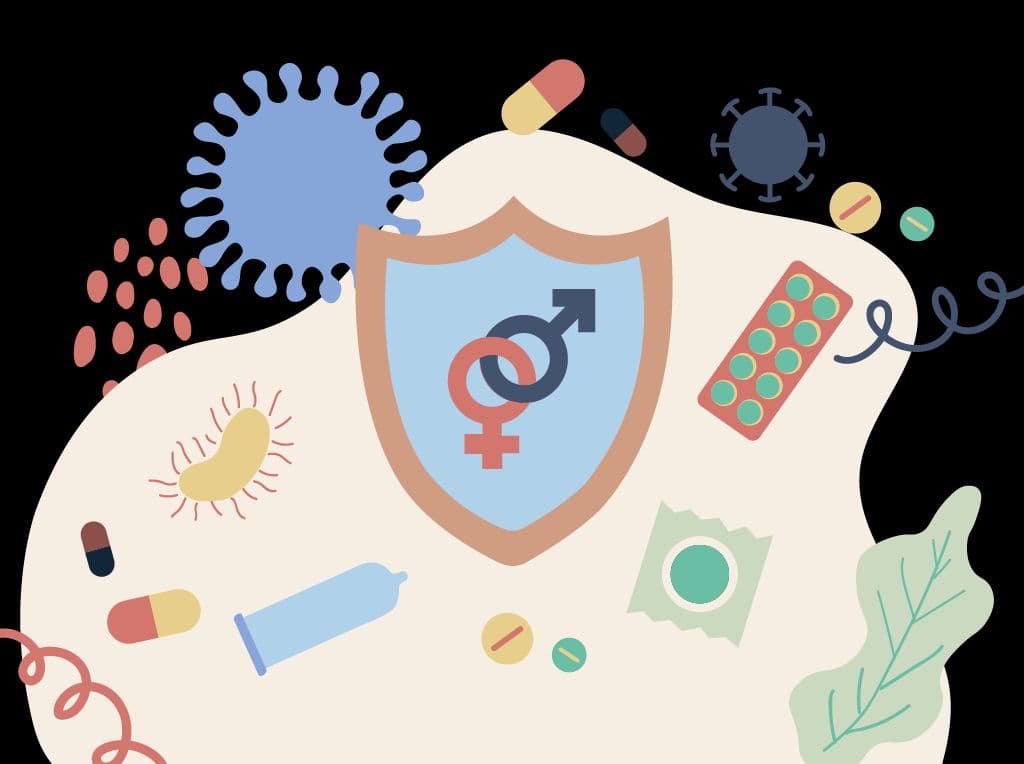A lot, apparently.
A dentist visit is probably one of the scariest childhood experiences ever. Irrespective of the perfect smile of the dentist, the petrifying chair coupled with the deadly scraper promise to make the visit as uncomfortable as possible. Beyond this privileged façade of common discomfort lies the ignored discrimination and stigma faced by the LGBTQ+ community in the healthcare setting, further augmented by heterosexist language of medical literature. This article is a review of struggles and silver linings in relation to lesbian sexual and reproductive health.
Sex is good; disease-free sex is better. The myth of disease-free lesbian sex is as old as the Loch Ness monster, and unfortunately, about just as real. Contrary to historical perceptions, lesbian partners are not immune to STIs. Shared use of vaginal or anal penetrative sex toys are a possible means of infected secretion transfer among others. Population studies on STI transmission statistics are however scarce for lesbian relationships and are predominantly covered by small studies with intra-clinic patient participants or volunteer surveys. Common infections including herpes, chlamydia, warts from Human Papillomavirus, gonorrhea , HIV and even syphilis have anecdotally been recorded by women in clinical reports. Therefore, it is important to prioritise and regularise a GP or gynaecologist visit to keep away from the nasties even for lesbian partners.
For many, the decision of kids is a hard one: it’s voluntarily setting up for decades of patience and bank-balance erosion. Months of ‘what to expect’ research culminates in frustration and joy and anger and incredulity, and of course, incessant doubt. For lesbian partners, the decision of pregnancy is further weighed down by punitive justice systems and hostile social narratives. Beyond questions of legality, partners often battle questions of morality and the reality of redefining century old social norms. Countries still record general practitioners refusing treatment and signed references to lesbian partners opting to become pregnant. The lack of privacy and sensitivity in the process is accompanied by reluctant donors, isolation, outright indifference and lack of support to partners that choose to terminate. The entire decision of pregnancy leading up to delivery is riddled with social, healthcare and legal hurdles.
Okay, now what? Abandon mission? Or just craiglist potential sperm donors? Healthcare practitioners are taking an active effort to create a welcoming environment for the LGBTQ+ community to encourage a pleasant patient-physician relationship. Administrative initiatives include stringent anti-discrimination policies, addition of an inclusive language, and the set up of pre- and post-conception resource and counselling centres. The origin of the egg, sperm, mode of insemination and pregnancy, and financial and legal protections are discussed by physicians with their patients. In most countries, the sperm donor may be known or anonymous. Clinics from some parts of the world also offer free 30-40 minutes consultation in an effort to provide an introductory overview of the process to help couples plan their pregnancy. The process may sound complicated, but rewards with two entry tickets for the cool moms’ club.
Because pop culture is usually the most trusted source of information, sperm donors are perceived as sketchy college kids with goaties bottling their quickest swimmers for a quick buck in bitcoin. In a stunning alternative, reality operates otherwise. Donors have to document their medical and family history as well as undergo a physical examination and blood tests. In Canada, the recommended and requisite tests for sperm donors include HIV1, HIV2, Syphilis, Hepatitis B, Hepatitis C, CMV, Gonorrhea and Chlamydia, in addition to semen analysis and Rh factor analysis. The common screening guide works as more than just a checklist given to couples gone sperm shopping, the necessity and procedure of each test is explained to the donor and receiver by their respective physicians.
Alright, time for some shop talk. Babies are expensive, and so is conception for lesbian partners. Whilst countries with social care come cheaper, private and semi-subsidised healthcare account for mounting pregnancy costs for lesbian partners. For example, NHS (UK) requires a lesbian couple to self finance 12 rounds of artificial insemination before it sponsors any future IVF. An all inclusive IVF package from ABC clinic is listed to cost £3360. The California CryoBank lists the cost of basic semen retrieval, genetic testing and cryopreservation (fancy freezing) as $5000. Couples also choose to be legally prepared through the intricacies of the pregnancy, adding to the incurring costs. Thorough insurance research is recommended both by physicians and healthcare organisations to subsidise the costs of pregnancy for lesbian partners, and the perceived relationship between the child and the donor is advised to be worked out prior to conception. Adoption and surrogacy are alternative options for couples opting for non-biological children.
These steps may sound overwhelming and it’s easy to be fazed. Welfare organisations are calling for social and bureaucratic changes the in the process and financing and raising awareness on lesbian parenthood. Healthcare providers guide couples through each stage of the process and it is important to keep communication lines open. Through it all, it is advised to seek therapy for any physical or emotional turmoil. But for lesbian partners around the world seeking to be mothers, the baby is worth it all.
Disclaimer : This information is provided for educational purposes and should not be construed as medical advice. Please consult with your healthcare practitioners before undertaking any changes in your diet or adding supplements.
ProactiveForHer is a digital clinic for women, offering accessible, personalized, and confidential health-care solutions. We offer products and services for out-patient health concerns of Indian women, across their lifetime - from puberty to pregnancy to menopause. To know more on the sexual and reproductive health of women, visit https://www.proactiveforher.com/

